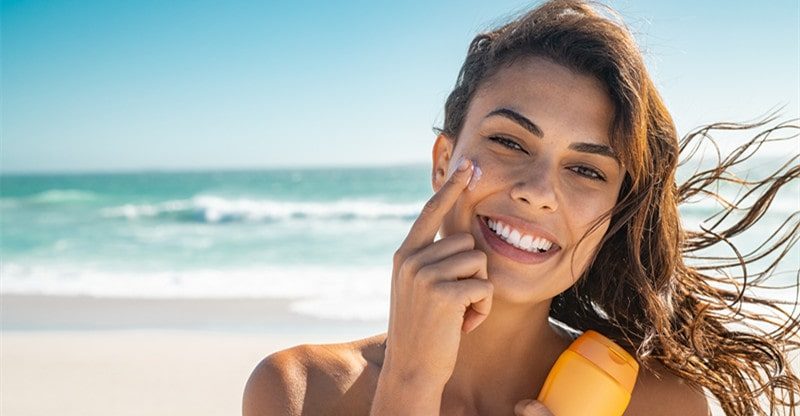The Deadliest Adversary Of A Hair Extension: Sunscreen
Ever wonder why your hair extensions still turn into an unflattering brassy orange or pink after taking all the proper precautions?
Perhaps you should check your sunscreen.
While sunscreens are excellent for your skin, they won’t similarly protect your hair extensions.
What happens if your hair comes in contact with sunscreen?
Avobenzone (Butyl Methoxydibenzoylmethane) and Octocrylene are common ingredients in sunscreens.
Avobenzone functions as a very efficient UVB and UVA ray blocker, but only for around 30 minutes before its effectiveness starts to deteriorate when exposed to sunlight.
Because of this, octocrylene is included in the mix as a stabilizing agent to make it last longer.
The minerals in the water connect to the disintegrated cells in the hair extensions because they are such active elements when exposed to water, resulting in a reaction that causes the hair to discolor into such brassy tones.
What can you do if sunscreen has already been applied to your hair?
The first step, if it’s too late and your hair has already come into contact with the sunscreen, would be to use a deep cleansing shampoo to remove any sunscreen residue that may still be present in your hair.
Apply Malibu C hard water treatment after that to the troubled regions.
Stick to the sachet’s directions and let it in for the suggested amount of time before rinsing it out.
Blonde extensions are significantly more prone to discoloration since their lighter color makes the discoloration more visible to the eye.
In this situation, use a purple shampoo and let it sit for a few minutes before rinsing it off to remove any warm pigments that may still be present.
Avoid letting it sit in your hair for too long to prevent purple hair.
After you’ve finished these processes, go in with an intense conditioning mask and a heat protector.
Finally, you can wash your hair and style it as usual.
Remember that hair extensions are not your natural hair and won’t get the nutrients from your scalp that serve as a barrier of protection.
They are significantly more susceptible to discoloration, indicating many more causes for their harsh pink and brassy tones than just sunscreen.
Hard water, seawater, chlorine, and sun exposure are just a few examples.
So remember that the next time you plan a pleasant day at the beach.
Put your hair up and out of the way using a scarf or protective headgear.
Now, it looks like a gorgeous bombshell while protecting your skin and hair from the sun.



